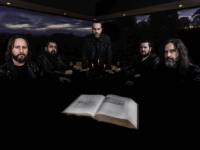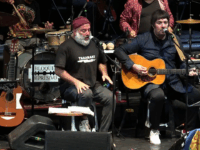By: Emily Maria Diaz

In the experimental documentary, Mimbre, 1957, directed by Sergio Bravo audiences are taught life-long passion through music and simplicity.
This short film depicts the life work of Alfredo Manzana, a basket weaver in rural Chile. It is unique in that there is no standard form of narration throughout the film except for four music breaks which effectively breathe life and structure into this footage. Shots of Manzana and his work are the main points of focus as a substantial amount of close shots are designated to his intricate basket weaving works.
Wicker horses, cows, and sturdy baskets are some of the many creations director Sergio Bravo leads audiences to pay close attention at. But, what truly helps maintain audience retention throughout this documentary is the music. The same couple of chords play throughout the 10-minute duration of this film, yet by manipulating the intensity, rhythm, and resonance, the music elevates the watching experience. In particular, the final music break in the film where elderly community members appear onscreen for the first and last time throughout the film stands out. The music is tender and somber as we see shots of elderly women interacting, a dog laying tiredly out in the sun, and a curious child observing their surroundings. This is life in rural Chile- this is one-half of the heart of the film. As the music steadily picks up, the other half presents itself: Alfredo Manzana. As he eagerly weaves his baskets to the upbeat guitar melody, it is clear that Sergio Bravo implores audiences to recognize the significance of Manzana’s passion for this community. Alfredo Manzana has a practical profession that is also a creative outlet which heightens the character and sense of wonderment in his town.
I enjoyed this documentary, primarily because, as a body of work, it maintained a consistently earnest tone. And as a non- Chilean commentator, I find this incredibly significant because sincerity in film
breeds empathy from watchers. In other words, I found myself relating and becoming nostalgic throughout parts of this film because I could connect it to my experiences visiting the Dominican Republic. Was this director Sergio Bravo’s intention? Potentially. But, I’d like to think it was simply an inevitable ripple effect of capturing quirky, genuine slices of life from Alfredo Manzana’s lived experience.





















0 Comments